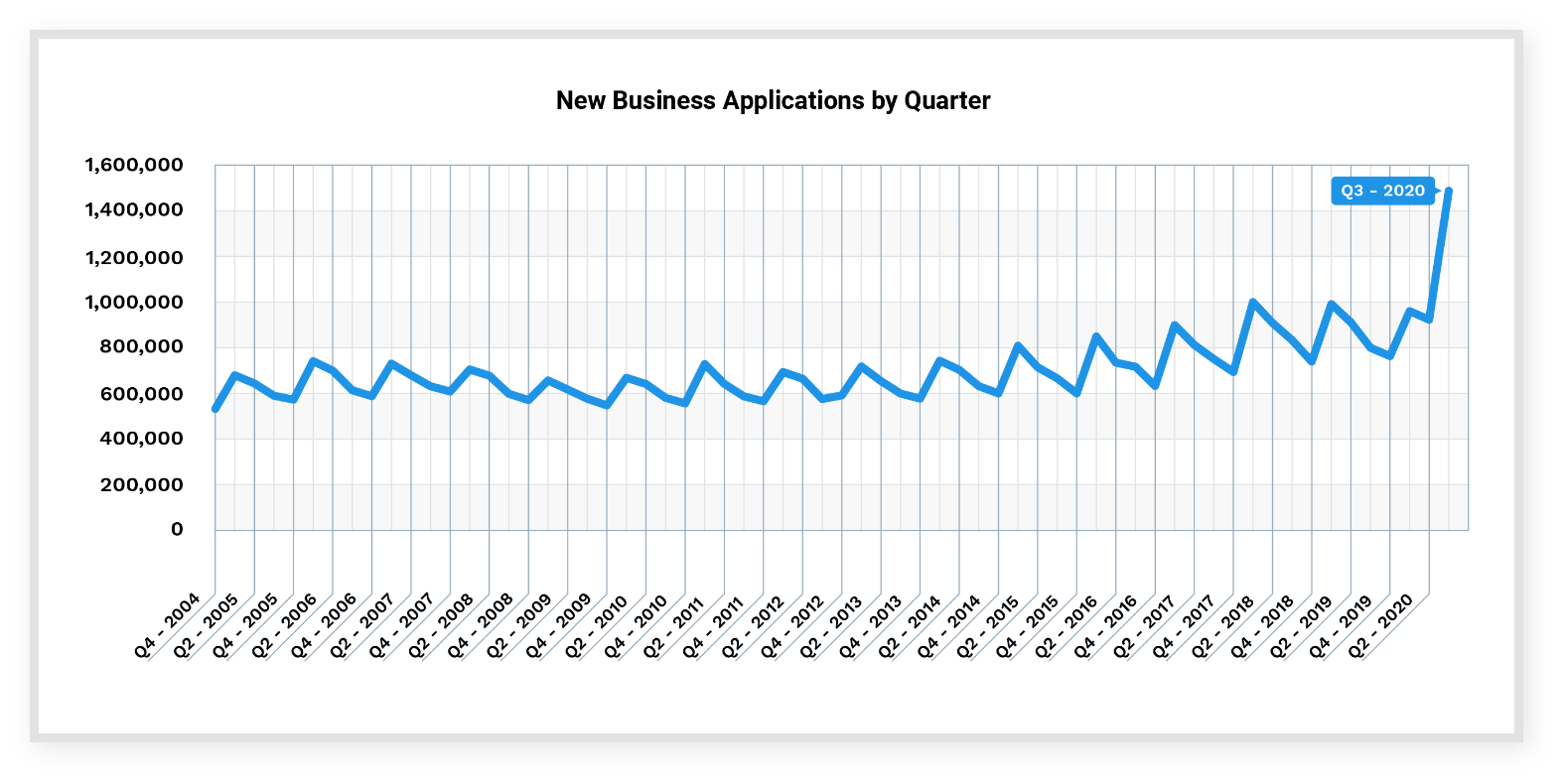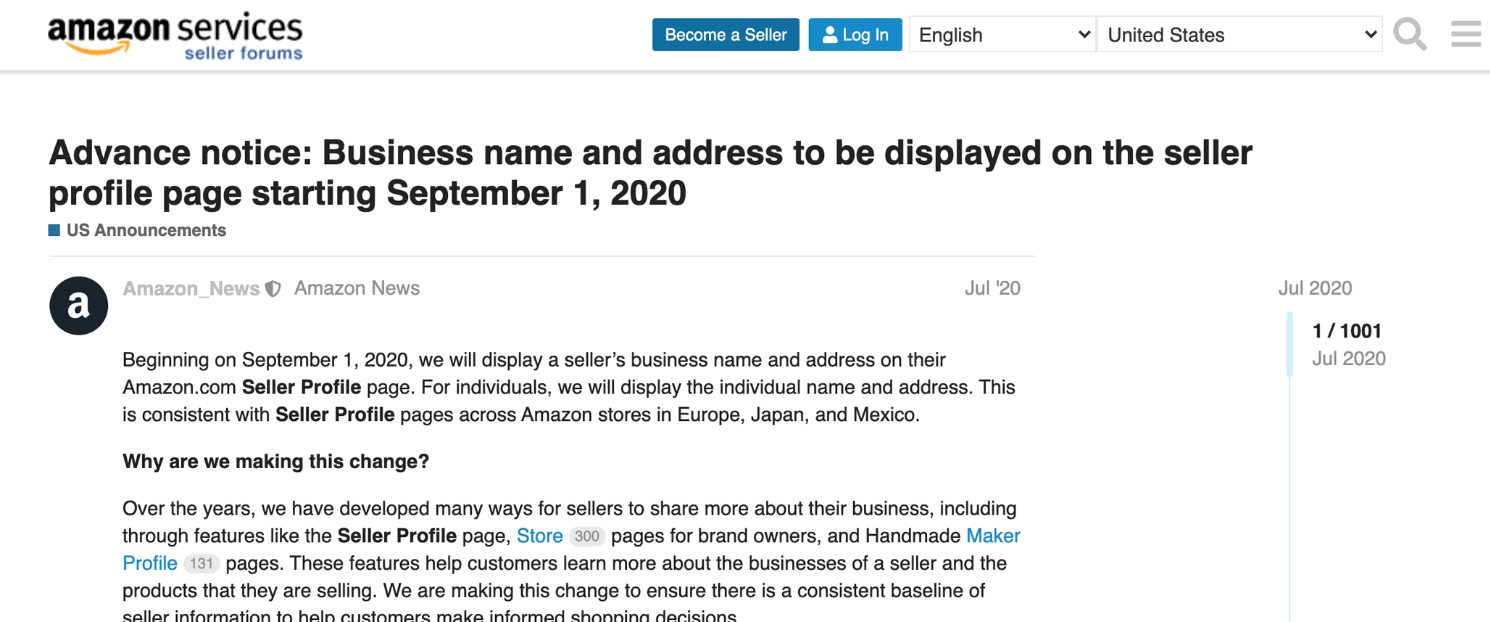
How Smart Startups Protect Themselves: The 7 Super-Powers of a Virtual Address
Startups need every advantage to keep up with their competitors – especially now, because the competition is ferocious.
“People are starting up new business at an unprecedented rate,” says business expert Gene Marks, writing in The Guardian. “[2020]’s third quarter saw a whopping 1.6m new business applications filed, an increase of 86% compared with the corresponding quarter [in 2019].”

How can an entrepreneur keep up with such a giant crowd?
One answer is a virtual address. The name is a little confusing, because the address is as real as the Empire State Building. It contains an office where professionals specializing in virtual mail will:
-
receive, open, and digitally scan the startup’s mail
-
transmit images of the mail to the startup’s employees
-
store the images and the physical mail
-
deposit checks that come in the mail
-
forward letters and packages
-
enable electronic signatures
-
encrypt confidential messages
-
shred and recycle the mail
-
and perform other services
At this point, you might be thinking, “I can handle my mail myself. Why do I need a virtual address?”
1. Credibility
As you know, a new business needs to establish itself. Which of these (fictitious) addresses looks more like the location of a prestigious organisation?
A. 100 Main Street, New York, New York
B. 3467 ½ Southeast Chickengristle Lane, Littlebush, Wyoming
“The most common reason for a virtual office [address] is for clients to give their business a professional address,” the ratings and reviews website Consumer Affairs explains. “It allows customers to feel secure doing business with [them].” An impressive address on your website, stationery, advertising, and other places can give the impression that you’re the next Uber or Airbnb, even if you work out of a tiny, one-window office in a humble neighborhood.
2. Privacy
Last July, Amazon made an announcement to sellers in big, bold letters:

“Beginning on September 1, 2020, we will display a seller’s business name and address on their Amazon.com Seller Profile page,” the retail giant said. If you’re building your company from your home office or garage, you might have to display your home address, which you may not want to do if you like privacy.
You could protect your privacy by using a post office box – but you’d run into trouble with Google. “Use a precise, accurate address and/or service area to describe your business location. P.O. boxes … are not acceptable,” Google says in its guidelines for businesses. (A number of states feel the same way; see below under “Compliance.”)
As a new company that doesn’t have its own network of offices and salespeople, you probably need the sales channels of Amazon and Google. The best tool for working with them while protecting your privacy is an address other than your home – a virtual address. “Virtual business addresses are a great way to protect your privacy because you won’t have to make your home address or business location public if you use one,” Sam Mollaei, an attorney specializing in startups, has said on his blog.
3. Time.
How long do you spend in opening, sorting, filing, throwing out, rerouting, and otherwise working with letters and packages? How much time do you lose in getting them to or from the post office, the UPS office, or the FedEx office? And what about the times when you’re out of the office, not knowing that crucial letters and checks are sitting in your mailbox?
As a startup, you don’t have a massive staff to handle these chores. You have to do them yourself, which can slow you down.
But mail that comes to a virtual address never wastes your time. Digitised images of your deliveries (separated into their proper categories) zip instantly to your laptop, phone, or other device so you can see them when they arrive or any other time. Virtual mailrooms even deposit your checks for you.
4. Peace of Mind.
If you’re not at your office when deliveries arrive, you may never get them.
• If the sender needs a signature and you’re not there to sign, the package goes away and you have to chase it down.
• If the delivery service does drop it off, it might go missing, especially if your office is in your home. The neighbor-to-neighbor app Nextdoor is full of stories about packages that landed outside a front door but vanished into the hands of thieves.
Deliveries can be a headache for a startup that doesn’t have the staff to monitor its mailbox. But the mailroom at a virtual address is ready to receive deliveries day or night.
5. Growth.
Would you rather buy from a company that has an address near you or from some obscure, faraway place you may never have heard of? Buyers like a local presence, especially when they’re dealing with a new company that hasn’t fully proven itself. If you want to sell to customers thousands of miles away, an address in their area could help you.
A good virtual address service can set you up with mailrooms throughout the world. Name a market that you want to crack, and the service will have people there ready to work for you.
6. Compliance.
Some states require a business to have a physical address rather than, say, a PO box. Some homeowner associations won’t let residents advertise their home as a business address. Rules are everywhere, and they can make a startup’s life stressful.
A virtual address supplies a simple way to comply with the rules. It’s not a PO box or your home address, so it can keep troublesome authority figures off your neck.
7. Money.
Most startups don’t have much money. A report by data-analysis firm CB Insights says that nearly a third of failed startups list “Ran out of cash” as a key reason why they died – the second most common reason of all. (The most common is “No market need.”)
A virtual address can keep cash in your pocket. It generally costs much less than renting your own mailroom space and hiring people to staff it. That’s especially true if you want to set up local mailrooms in costly cities like San Francisco or New York.
Credibility, privacy, time, reliability, growth, compliance, money: These are the seven super-powers of a virtual address for startups. With a hero that strong on your side, you can save the world – or at least your own company.
